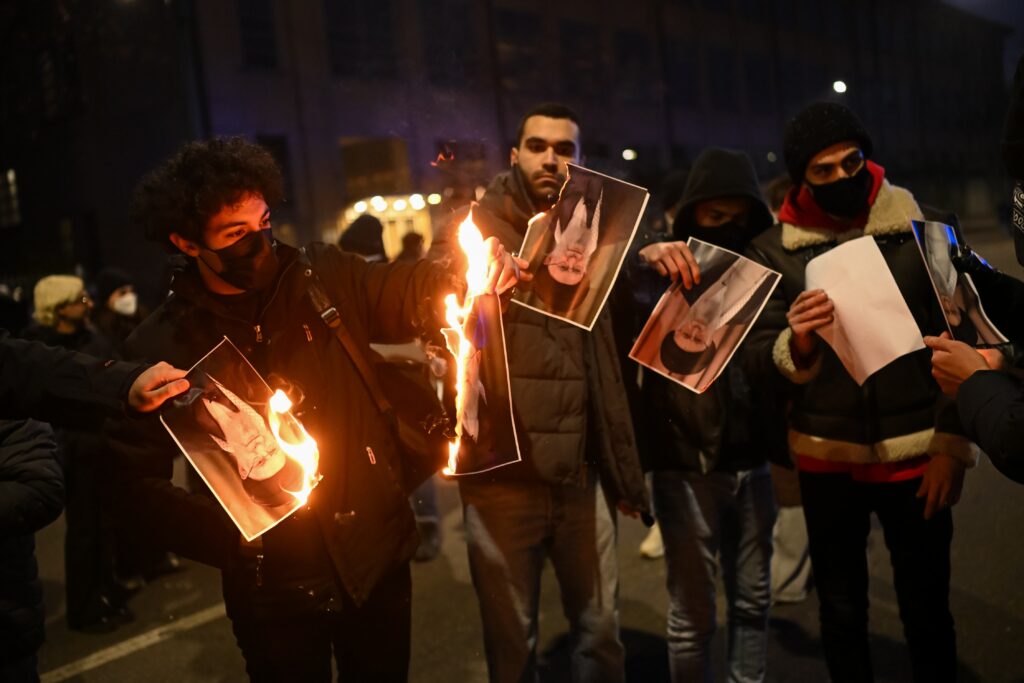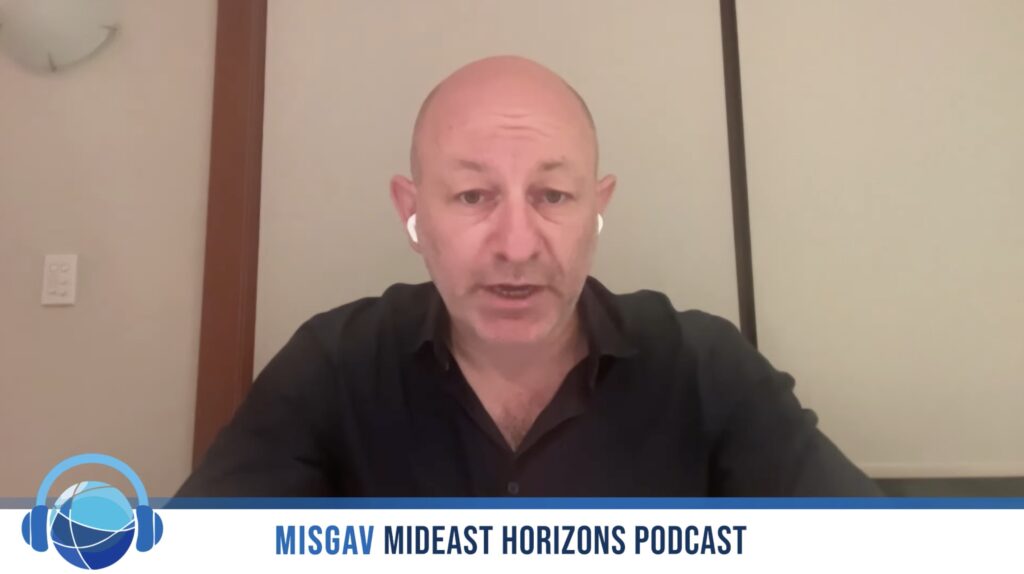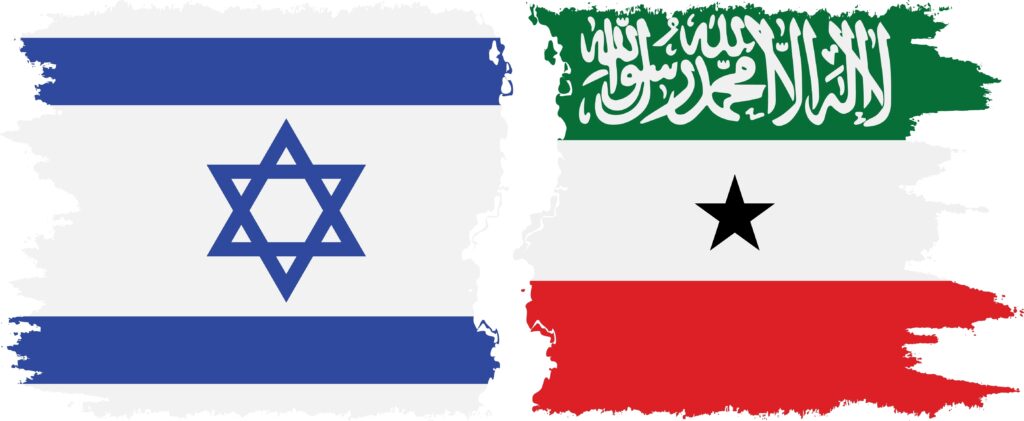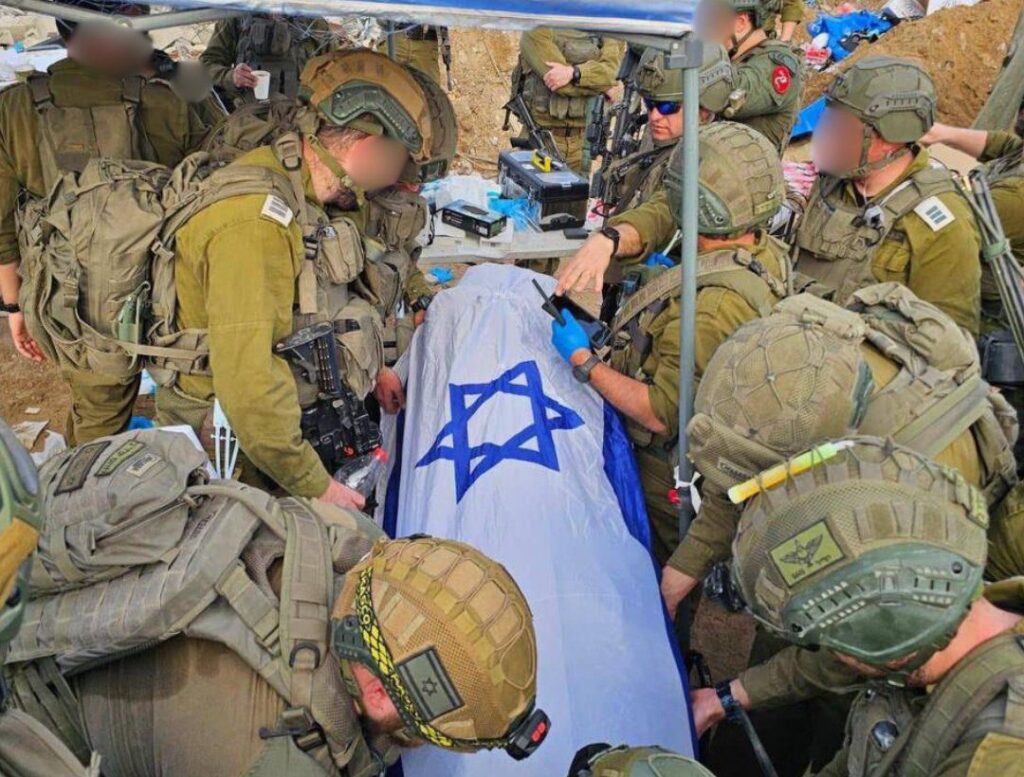UPDATES
The Gaza Crisis
January 12, 2009 | AIJAC staff
Update from AIJAC
January 12, 2009
Number 01/09 #04
Today’s Update is concerned with the ongoing violence in and around the Gaza Strip. There are ongoing, intensive diplomatic engagements in Egypt, trying to thrash out a ceasefire agreement that would prove lasting. Much of the discussion is centring on the possible deployment of foreign troops on the Gaza side of the Egypt-Gaza border. Egypt is in favour of the move, after having ruled out forces on its side of the border. Palestinian President Mahmoud Abbas is also in favour, though he wants Fatah forces to also be deployed. Notably, Hamas has been all but sidelined in these discussions, indicating that Egypt has finally realised Hamas is more a part of the problem than the solution. After being belatedly invited to Cairo for ceasefire talks, Hamas has been warned by its chief arms supplier Iran not to accept the Egyptian truce proposals. The director of Abbas’ office in Ramallah has stated that Hamas is ready to enter into a ceasefire, though Hamas is, publicly, at least, remaining defiant. An unnamed Egyptian official has made the same claim.
In this vein, our first article today is from Ynet and written by Guy Bechor, of the Interdisciplinary Centre in Herzliya. Bechor outlines what the world needs to do in order to prevent more violence in the future. For this timely piece, CLICK HERE.
Implicit in Egypt realising the importance of all but sidelining Hamas is a concurrent realisation that it will have to do more to stop arms smuggling into the Gaza Strip from its territory. While in the 12 months before the current violence, Egypt notably stepped up its efforts, it is now reportedly seriously considering the idea of allowing a large moat to be constructed along the Egypt-Gaza border, something it has rejected in the past. The news comes as Iran is apparently attempting to transport weapons and explosives to Sinai, so Hamas can smuggle them into Gaza, through some of the few-remaining tunnels. Read all about it here.
Meanwhile, Israeli Prime Minister Ehud Olmert, Foreign Minister Tzipi Livni and Defence Minister Ehud Barak are apparently debating how much further to push the Israeli operation. Both Livni and Barak want the fighting to end sooner rather than later, both for different reasons. Olmert wants the IDF to push further into Gaza, to further weaken Hamas, and will probably convene the Security Cabinet to vote on the issue. Olmert believes he has the numbers in the Security Cabinet to get his way.
Today’s second article is by Michael Walzer, clearing up the concept of proportionality during warfare. He makes the important point, “Before the six months of cease-fire… Hamas had only primitive and home-made rockets that could hit nearby small towns in Israel. By the end of the six months, they had far more advanced rockets, no longer home-made, that can hit cities 30 or 40 kilometres away. Another six months of the same kind of cease-fire… and Hamas would have rockets capable of hitting Tel Aviv.” To read Walzer’s New Republic article, CLICK HERE.
Finally David Pollock, of the Washington Institute for Near East Policy, assesses the Arab reaction to the current violence. He concludes, importantly, “Arab anguish over the tragic situation in Gaza is very real. Yet contrary to common perception, no evidence exists that this situation is ‘radicalizing’ or ‘destabilizing’ the region, or even strengthening Hamas politically. The reality, in fact, is quite the opposite. So far, Arab reactions suggest that this crisis could provide real opportunity, particularly if the legitimate humanitarian concerns are addressed, to help achieve an important U.S. objective in the quest for Arab-Israeli peace: to weaken, isolate, and ultimately marginalize Hamas, unless it unexpectedly proves willing to sue for peace.” To read this worthy analysis CLICK HERE.
Readers may also be interested in:
- A powerful article by Amir Taheri in The Times entitled, “No way forward while the Hamas hydra lives.”
- An article detailing recent Hamas rocket attacks into Israel, and how Israel is defending its citizens – in particular school children.
- The IDF has released figures showing that Qassam rocket fire has been halved since the first days of the operation.
- The latest BICOM briefing of the Gaza situation.
- Israel’s Shin Bet chief, Yuval Diskin, told the Israeli Security Cabinet that some of the senior Hamas leadership was hiding in a network of tunnels and bunkers under Gaza City’s Shifa Hospital.
- A video taken by IDF soldiers of a Gaza zoo and school booby trapped by Hamas.
- Noted law expert Alan Dershowitz on how Hamas has broken innumerable international laws during this conflict.
- Anne Bayesfsky on the UN’s hypocritical stance on the violence, and a similar article about NGOs from NGO Monitor’s Dan Kosky.
- US President-elect Barack Obama has said his administration will from “day one” work on finding an Israeli-Palestinian peace. In response to Arab criticism over his silence on the Gaza situation, Obama stood by his comments justifying Israel defending itself against rocket attacks. Other reports on the interview are here and here.
- Former Israeli ambassador to the UN Dore Gold on last week’s Security Council ceasefire resolution.
A Dangerous Victory
Guy Bechor, Ynet
There is no doubt that Hizbullah leader Hassan Nasrallah is upset these days: Hamas is ruining his “spider web theory,” according to which Israel is a weak and indulgent country that would not dare hit its enemies too hard.
Today, no one can have any doubt about it: Israel proved to whoever needed this proof in the Middle East that Nasrallah’s spider web no longer exists. The Jewish State faced the “golden triangle” in the current war and was able to stand up to it: The home front is not crying out in the wake of rocket attacks, but rather, shows impressive endurance; civilian enemy casualties stir the global media yet do not hinder Israeli decision-makers; and finally, it appears we have been cured of the masochistic need for commissions of inquiry in the wake of wars.
There will no longer be anyone in the Arab world who can claim that Israel is weak and begging for its life, as was the case in the Hamas show depicting Gilad Shalit. The images of the past two weeks have been etched in the collective consciousness for years to come, while Hamas’ arrogance headed down to the trenches, along with the group’s frightened leaders.
The lesson has been learned, and now the time has come for the diplomatic struggle, which will be no less difficult than the military campaign. The IDF must deploy on the outskirts of Gaza Strip cities, tighten its pressure (while refraining from supplying the Palestinians with fuel,) continue its aerial assaults, and avoid contact with civilians, as the enemy will be attempting to exact casualties among our ranks via terror acts in order to tip the scales of victory.
Israel has won, yet the moment of victory could be the most dangerous in the entire campaign, as in the heat of success we may wish to keep on moving forward and get more, and in doing so lose everything. The moment where one stops remains etched in consciousness, and right now is this moment.
‘Continue to exert maximal pressure’
We won, and now we must bear the fruit of success. How so? First, we should be wary of dangerous “mediators” such as Egypt and Turkey. In recent days, officials at the Prime Minister’s Office admitted that enlisting the help of Islamist Turkish leader Erdogan as a mediator vis-à-vis Syria was a “mistake.” We jeopardized immensely important interests vis-à-vis Turkey, as any Israeli disagreement would have immediately hurt this sensitive mediator.
We should not be using Egypt’s help on the Gaza front, as Cairo is an interested party in the affair. The Egyptians have a clear interest in seeing Gaza remain in our hands following the operation. Therefore, only a Security Council track and another resolution via the UN should be accepted by Israel, as was the case following the Second Lebanon War. The Americans and French can start working on such resolution.
It will be a struggle, and we should prepare for it. To that end, we should continue to exert maximal pressure on the Strip, yet do so without endangering our troops too much. What are Israel’s minimum demands, which we must not forego?
The crossings between Israel and the Strip will become a border, and will no longer be opened, as the weakened Hamas will continue to rule Gaza, and Hamas is Israel’s enemy. Never in the history of the world had a state fed its enemies.
The Rafah Crossing will from now on become Gaza’s connection to the Arab world, and Israel will leave the supervision work to Egypt. The Egyptians already realized the gravity of the damage Gaza can cause them.
A force similar to UNIFIL, comprising at least 15,000 troops, will be deployed across the Strip, as is the case in southern Lebanon. This will be the world’s way of monitoring what goes on in this dangerous zone. This force will monitor the border crossings and ensure that no new tunnels are being dug.
This force will have the mandate to engage in a phased demilitarization of the Strip and monitor Hamas’ future military build-up. Why should Hamas agree to it? Because it will remain the Gaza Strip’s ruler.
An international demand for the unconditional return of Gilad Shalit, in order to eliminate the legitimacy of future abductions.
Just as Nasrallah learned the lesson and agreed to the international terms set forth two and a half years ago, the same may happen with Hamas, whose condition is much worse than its mentor’s condition was – meanwhile, Hizbullah watches on from the north, disappointed by its student’s performance.
Back to Top
————————————————————————
On Proportionality
Michael Walzer, The New Republic, January 8, 2009
Let’s talk about proportionality–or, more important, about its negative form. “Disproportionate” is the favorite critical term in current discussions of the morality of war. But most of the people who use it don’t know what it means in international law or in just war theory. Curiously, they don’t realize that it has been used far more often to justify than to criticize what we might think of as excessive violence. It is a dangerous idea.
Proportionality doesn’t mean “tit for tat,” as in the family feud. The Hatfields kill three McCoys, so the McCoys must kill three Hatfields. More than three, and they are breaking the rules of the feud, where proportionality means symmetry. The use of the term is different with regard to war, because war isn’t an act of retribution; it isn’t a backward-looking activity, and the law of even-Steven doesn’t apply.
Like it or not, war is always purposive in character; it has a goal, an end-in-view. The end is often misconceived, but not always: to defeat the Nazis, to stop the dominos from falling, to rescue Kuwait, to destroy Iraq’s weapons of mass destruction. Proportionality implies a measure, and the measure here is the value of the end-in-view. How many civilian deaths are “not disproportionate to” the value of defeating the Nazis? Answer that question, put that way, and you are likely to justify too much–and that is the way proportionality arguments have worked over most of their history.
The case is the same with arguments focused on particular acts of war. Consider the example of an American air raid on a German tank factory in World War Two that kills a number of civilians living nearby. The justification goes like this: The number of civilians killed is “not disproportionate to” the damage those tanks would do in days and months to come if they continued to roll off the assembly line. That is a good argument, and it does indeed justify some number of the unintended civilian deaths. But what number? How do you set an upper limit, given that there could be many tanks and much damage?
Because proportionality arguments are forward-looking, and because we don’t have positive, but only speculative, knowledge about the future, we need to be very cautious in using this justification. The commentators and critics using it today, however, are not being cautious at all; they are not making any kind of measured judgment, not even a speculative kind. “Disproportionate” violence for them is simply violence they don’t like, or it is violence committed by people they don’t like.
So Israel’s Gaza war was called “disproportionate” on day one, before anyone knew very much about how many people had been killed or who they were. The standard proportionality argument, looking ahead as these arguments rightly do, would come from the other side. Before the six months of cease-fire (when the fire never ceased), Hamas had only primitive and home-made rockets that could hit nearby small towns in Israel. By the end of the six months, they had far more advanced rockets, no longer home-made, that can hit cities 30 or 40 kilometers away. Another six months of the same kind of cease-fire, which is what many nations at the UN demanded, and Hamas would have rockets capable of hitting Tel Aviv. And this is an organization explicitly committed to the destruction of Israel. How many civilian casualties are “not disproportionate to” the value of avoiding the rocketing of Tel Aviv? How many civilian casualties would America’s leaders think were “not disproportionate to” the value of avoiding the rocketing of New York?
The answer, again, is too many. We have to make proportionality calculations, but those calculations won’t provide the most important moral limits on warfare.
These are the questions that point us toward the important limits. First, before the war begins: Are there other ways of achieving the end-in-view? In the Israeli case, this question has shaped the intense political arguments that have been going on since the withdrawal from Gaza: What is the right way to stop the rocket attacks? How do you guarantee that Hamas won’t acquire more and more advanced rocketry? Many policies have been advocated, and many have been tried.
Second, once the fighting begins, who is responsible for putting civilians in the line of fire? It is worth recalling that in the Lebanon war of 2006, Kofi Annan, then the Secretary-General of the UN, though he criticized Israel for a “disproportionate” response to Hezbollah’s raid, also criticized Hezbollah–not just for firing rockets at civilians, but also for firing them from heavily populated civilian areas, so that any response would inevitably kill or injure civilians. I don’t think that the new Secretary General has made the same criticism of Hamas, but Hamas clearly has a similar policy.
The third question: Is the attacking army acting in concrete ways to minimize the risks they impose on civilians? Are they taking risks themselves for that purpose? Armies choose tactics that are more or less protective of the civilian population, and we judge them by their choices. I haven’t heard this question asked about the Gaza war by commentators and critics in the Western media; it is a hard question, since any answer would have to take into account the tactical choices of Hamas.
In fact, all three are hard questions, but they are the ones that have to be asked and answered if we are to make serious moral judgments about Gaza–or any other war. The question “Is it disproportionate?” isn’t hard at all for people eager to say yes, but asked honestly, the answer will often be no, and that answer may justify more than we ought to justify. Asking the hard questions and worrying about the right answers–these are the moral obligations of commentators and critics, who are supposed to enlighten us about the moral obligations of soldiers. There hasn’t been much enlightenment these last days.
Michael Walzer is a contributing editor at The New Republic. This piece also appears on the website for Dissent Magazine.
Back to Top
————————————————————————
Arab Reaction to Gaza Conflict: Anger at Israel, but scant support for Hamas
David Pollock
January 9, 2009
Washington Institute for Near East Studies
Most analyses of the Arab reaction to the Gaza Strip conflict have generally emphasized either widespread popular sympathy for Palestinian suffering and revulsion at Israel’s tactics, or political divisions about how to respond. Although both points are accurate, two important developments so far have been overlooked: only a handful of major street protests have occurred, and almost no tangible support for Hamas has materialized. Hamas’s apparent rejection of last night’s UN Security Council resolution calling for a ceasefire will probably continue this pattern.
Official Statements and Diplomacy
In one important sense, official Arab reaction to Israel’s assault on Gaza has repeated the pattern of the July 2006 war in Lebanon. At first, Egyptian and Saudi foreign ministers openly blamed Hamas — rather than Israel — for the crisis, much like they blamed Hizballah during the first week of war in Lebanon. After a week of fighting, however, as images of Arab civilian casualties mounted, this very public and official finger-pointing stopped in favor of angry outcries against Israeli “aggression” and “massacres.”
Various diplomatic gestures have matched this progression, though none of much significance. From the far end of the Arab world, Mauritania recalled its ambassador from Israel, but neighboring Egypt and Jordan, the only other Arab states with such representation, have not followed suit. Iraqi prime minister Nouri al-Maliki, fresh from another visit to Tehran, made a single public statement harshly denouncing Israel — even as the Iraqi media are preoccupied with the upcoming provincial elections and other issues closer to home. Libya has issued intemperate statements about Israel and its Arab “allies,” while avoiding any direct criticism of the United States. Remarks by Muammar Qadhafi’s son, Saif al-Islam, apparently cost him permission to enter Egypt, but the elder Qadhafi is off on another African tour and has made only a couple of vague public statements, mostly blaming other Arabs. The Federal Consultative Council of the United Arab Emirates, an appointed advisory forum with no real power, passed a resolution condemning Israel’s military operation. More significantly, efforts by Syria and Qatar to convene an emergency Arab summit have been stymied by opposition from Egypt, Saudi Arabia, and elsewhere.
Moreover, even after two weeks of fighting in Gaza, Arab officials are showing remarkably little support for Hamas, even as they express strong outrage at Israeli behavior and sympathy for Gaza’s civilians. Arab diplomatic efforts are focusing on negotiations for a quick ceasefire among representatives of Israel, Egypt, and the Palestinian Authority — but not Hamas. In the past two days, midlevel officials from Hamas have finally accepted an invitation for talks in Cairo with Egyptian intelligence chief Omar Sulaiman, but these talks are being carefully kept on the margins of the official effort. Privately, some Arab officials attribute this distancing from Hamas to growing suspicion about its Iranian connections, although they very rarely voice this view in public.
Humanitarian Contributions
Early in the crisis, foreign ministers from the Arab League pledged approximately $35 million in humanitarian assistance to Palestinians in Gaza. Since then, the Arab media is reporting donation drives and shipments of food and medicine to Gaza from various countries, including Egypt, Saudi Arabia, Syria, Jordan, Lebanon, Kuwait.
Credible public reports, however, indicate that substantial new contributions to Hamas are conspicuously absent. This is in sharp contrast to earlier periods, especially in the decade 1998-2007 — from Israel’s release from prison of Hamas founder Shaikh Ahmed Yassin until Hamas’s 2006 “coup” in Gaza — when Saudi Arabia and Qatar, among others, publicized massive donation drives explicitly benefiting Hamas and its institutions to the tune of hundreds of millions of dollars.
Public Demonstrations
The best available anecdotal evidence suggests there is a large perceptual gap between most Arab governments, who privately pin the blame for this crisis largely on Hamas, and Arab public and elite opinion, which mostly holds Israel responsible. Nevertheless, in another striking contrast with earlier regional conflicts, including the 2003 U.S. invasion of Iraq and the 2006 Lebanon war, large public demonstrations have so far failed to materialize in most Arab countries. Several factors perhaps explain this inactivity: suppression or intimidation by local security forces, insufficient time for popular resentment to accumulate, and unease about the internal Palestinian split between Hamas in Gaza and Fatah in the West Bank. Although a few hundred protesters have gathered sporadically in Amman, Cairo, and several other Arab capitals, as well as in south Lebanon, to date, that is about all. There have been a couple of exceptions, however: one predictable, one interesting.
In Syria, the official press has reported organized public demonstrations of thousands of people nearly every day for the past two weeks, with hundreds of thousands massing in Damascus on January 8. Needless to say, these are all government sanctioned and supported events, reflecting the party line more than spontaneous popular activism. Even so, the reaction in Syria appears relatively restrained for the time being and is likely to remain so, given the regime’s heightened security sensitivities.
Much more interesting was a massive protest in the Moroccan capital of Rabat in the early days of fighting. The rally drew hundreds of thousands, perhaps even a million or more participants, according to several credible reports — by far the largest such demonstration anywhere. The reasons for this exceptional case are probably also manifold: first, King Muhammad’s well-known tolerance, or even quiet encouragement, for such prodigious yet peaceful expressions of popular sentiment; second, the sponsorship of such rallies by nonopposition groups in Morocco, including the National Action Group for Solidarity with Iraq and Palestine and the Moroccan Association for Support to the Palestinian People; and third, the sheer distance from the conflict blurs the political distinction between Hamas and Fatah, and concentrates Moroccan minds on the humanitarian dimensions of the carnage in Gaza.
The Arab Media Angle
Coverage by al-Jazeera, still the most popular satellite television station in the region, has characteristically highlighted Arab suffering and civilian casualties during this crisis, but has uncharacteristically been reticent about providing a platform for Hamas spokesmen. Even Syrian media outlets have been sparing in offering Hamas officials a direct outlet, although the influence of that country’s tightly controlled media is exceedingly small. The major pan-Arab print media, reflecting their Saudi sponsors, have been quite factual in their news coverage and relatively balanced in their opinions, giving roughly equal space to columnists critical of Hamas (and also of Hizballah) as to those assailing Israel over the past two weeks. Egypt’s media has actually resumed ridiculing Hizballah and its leader, Shaikh Hassan Nasrallah, for “making words their only weapons” against Israel. Although most Arab media refer to Gaza’s casualties, whether civilian or military, as “martyrs” rather than as victims, there has been very little reference, except in the Syrian media, to Hamas as a “heroic resistance” or any other similar appellation.
Policy Implications
Arab anguish over the tragic situation in Gaza is very real. Yet contrary to common perception, no evidence exists that this situation is “radicalizing” or “destabilizing” the region, or even strengthening Hamas politically. The reality, in fact, is quite the opposite. So far, Arab reactions suggest that this crisis could provide real opportunity, particularly if the legitimate humanitarian concerns are addressed, to help achieve an important U.S. objective in the quest for Arab-Israeli peace: to weaken, isolate, and ultimately marginalize Hamas, unless it unexpectedly proves willing to sue for peace.
David Pollock is a senior fellow at The Washington Institute, focusing on the political dynamics of Middle Eastern countries.
Tags: Gaza





